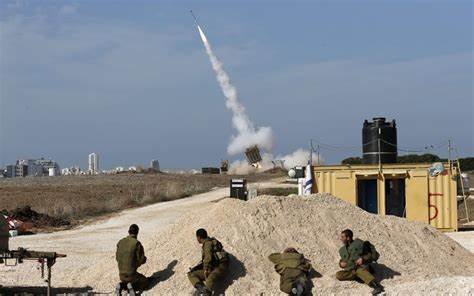Rising Tensions: Navigating the Impact of Conflict on Health and Well-being
In recent times, the world has witnessed a surge in conflict and tension, with Israeli Prime Minister Benjamin Netanyahu acknowledging a period of heightened tension as Gaza militants breach borders. Beyond the geopolitical implications, it is essential to explore the impact of such situations on the health and well-being of individuals and communities. This article delves into the medical conditions exacerbated by conflict, shedding light on the often-overlooked consequences that touch the hearts of those affected.
1.: “Physical Health Challenges Amid Conflict”
In the midst of conflict, physical health often takes a toll. Many individuals, both civilians and military personnel, may find themselves facing an array of medical conditions. These may include: 1.1. Traumatic Injuries: Gunshot wounds, shrapnel injuries, and explosions can lead to severe trauma, requiring immediate medical attention. 1.2. Displacement-Related Health Issues: Forced displacement can result in overcrowded living conditions, lack of access to clean water and sanitation, and an increased risk of infectious diseases. 1.3. Mental Health Effects: The constant threat of violence and loss can lead to mental health conditions such as post-traumatic stress disorder (PTSD), anxiety, and depression.
2: “Access to Healthcare During Conflict”
During times of heightened tension and conflict, access to healthcare can become severely compromised. This section explores the challenges that individuals face when seeking medical assistance: 2.1. Healthcare Infrastructure: Conflict can damage healthcare facilities and disrupt the supply chain of essential medical equipment and medications. 2.2. Humanitarian Aid: Humanitarian organizations often struggle to provide assistance in conflict zones due to security concerns, leaving vulnerable populations without access to medical care. 2.3. Mental Health Support: The need for mental health services may increase dramatically during conflict, yet resources for mental health support are often scarce.
3: “Impact on Vulnerable Populations”
Conflict disproportionately affects vulnerable populations, including children, the elderly, and individuals with pre-existing medical conditions. This section highlights their unique challenges: 3.1. Children’s Health: Children are particularly susceptible to the physical and emotional toll of conflict, with disruptions in education, nutrition, and routine vaccinations. 3.2. Elderly Care: The elderly may face difficulties accessing medical care, managing chronic conditions, and coping with the stress of conflict. 3.3. Individuals with Chronic Illnesses: Managing chronic conditions like diabetes, heart disease, and respiratory diseases becomes even more challenging during conflict when access to medication and healthcare is limited.
4: “Psychosocial Impact of Conflict”
Beyond physical health, conflict has profound psychosocial effects. It is essential to consider these aspects: 4.1. Community Resilience: Conflict can strain community bonds and social support networks, affecting individuals’ emotional well-being. 4.2. Grief and Loss: Many individuals experience profound grief and loss during conflicts, whether due to the death of loved ones or the destruction of their homes. 4.3. Coping Mechanisms: Examining how individuals and communities cope with the stress of conflict is crucial, as some turn to harmful behaviors such as substance abuse.
5: “International Response and Aid Efforts”
This section discusses the international community’s role in addressing the health challenges arising from conflicts: 5.1. Humanitarian Organizations: NGOs and international agencies play a vital role in delivering healthcare, food, and shelter to conflict-affected areas. 5.2. Peacekeeping Efforts: The presence of peacekeeping forces can facilitate humanitarian access and contribute to stabilizing healthcare infrastructure. 5.3. Mental Health Initiatives: Recognizing the importance of mental health support in conflict zones, various organizations work to provide counseling and therapy to those in need.
Conclusion: Conflict and heightened tension, as acknowledged by Israeli Prime Minister Benjamin Netanyahu, bring about a myriad of health challenges that touch the hearts of those affected. From physical injuries to mental health struggles and the displacement of vulnerable populations, the impact is far-reaching. However, through international cooperation, humanitarian aid efforts, and a deeper understanding of the psychosocial aspects, we can work towards alleviating some of the suffering and rebuilding the health and well-being of communities affected by conflict. It is a collective responsibility to ensure that healthcare and support reach those in need during these trying times.






